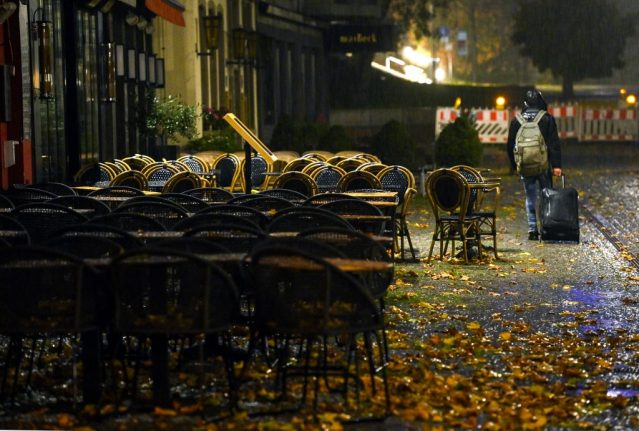The bankruptcy is the final chapter in the colourful story of company founder Beate Uhse-Rotermund, dubbed “First Lady of German Sex”, whose frank and unashamed attitudes to eroticism transformed post-war German sex life.
“The Management Board of Beate Uhse AG has decided to take this step because in the advanced negotiations with a group of investors on a financing transaction recently, no agreement could be reached,” board member Michael Specht said in a statement announcing the insolvency.
The group, which sold lingerie, erotic films and sex products, was no longer able to service its debt – €30 million of which were due for repayment in 2019.
In October, it said its loss for 2016 was wider than expected, reaching €6.2 million even before tax and interest were taken into account.
The company's vertiginous fall came over a decade after the death of its founder, who died in 2001 at the age of 81.
Uhse began her foray into erotic business in 1946, when she put together a pamphlet called “Document X” describing how women could avoid pregnancy.
In post-war Germany, her advice was in high demand and she sold thousands of copies of her brochures.
The mail order business thrived and the former fighter pilot and member of the Luftwaffe opened in 1962 her first shop in the German town of Flensburg.
Named Institute of Marital Hygiene, the store selling lingerie and contraceptives became the world's first sex shop.
Basic human need
Her activities often ran counter to the morality of post-war Germany and she was called before the courts in thousands of legal suits filed against her.
Yet she remained frank and unashamed about selling erotic ware.
After Germany relaxed its anti-pornography laws in the 1970s, Uhse's business flourished.
Uhse became a household name in Germany, and with characteristic panache she laid on a remarkable show to mark the flotation of the company in 1999 on the MDAX in Frankfurt.
Scantily-clad women handed out mail-order catologues of sex toys and a pink-ribboned history of lingerie to celebrate the launch of shares in the company.
Her philosophy was summed up by the group's chairman, Hans-Dieter Thomsen, who pointed out: “Sex is the third basic need for humans after eating and drinking. Our business is largely independent of economic cycles.”
Over the decades, Uhse expanded her empire, opening a sex TV channel, putting stores near German highways and hitching up with T-Online, the Internet unit of German telecoms giant Deutsche Telekom, in an exclusive on-line shopping deal.
The group also attempted to expand its market by distributing a line of halal sex products in 2014.
But it proved unable to withstand the onslaught of online commerce.
READ ALSO: Beate Uhse erotica hit where it hurts by free online porn
Pornographic films, once a staple of the chain, can now be viewed online for free, while discreet online ordering rendered the existence of many brick and mortar stores obsolete.
Despite several attempts to rebrand with new stores aimed at women, the company was unable to retain its hold on the market.
Nevertheless, Uhse's place in German history remains untouchable.
“In the 1950s, Germany was a place where many women were terrified of getting pregnant and kept woefully ignorant about sexual matters,” Der Spiegel weekly wrote in 2011.



 Please whitelist us to continue reading.
Please whitelist us to continue reading.